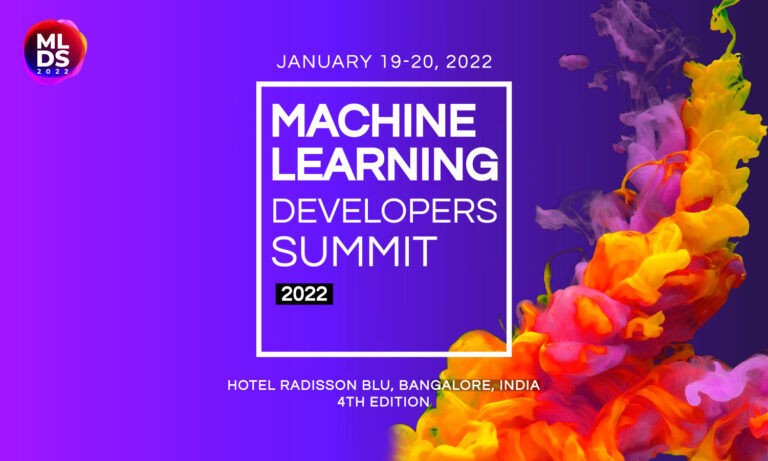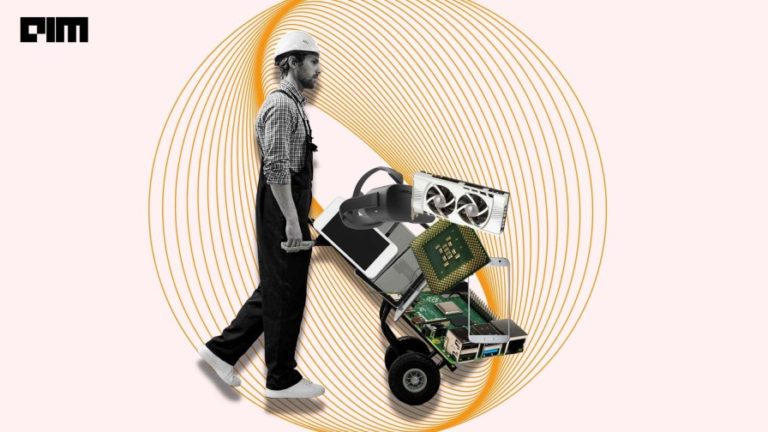“My fascination with AI began when I first heard about IBM’s supercomputer Deep Blue defeating Garry Kasparov.”
For this week’s ML practitioner’s series, Analytics India Magazine (AIM) got in touch with Hamsa Buvaraghan. Hamsa currently leads Google Cloud’s Data Science and MLOps Solution team, building revolutionary software solutions for business problems using Google’s Data Analytics and AI/ML products. She has an Engineering degree in Computer Science from Mysore University and an MBA, Honors from Saint Mary’s College of California.
AIM: How did your fascination with AI begin?
Hamsa: My fascination with AI began when I was in India, back in 1997, when I heard about IBM’s supercomputer Deep Blue defeating Garry Kasparov. This made top headlines then. After that, I wanted to explore more about this. However, access to research papers was really hard then, as I didn’t even own a computer or have access to the internet. I got introduced to computers by my father when I got access to a computer in his office at the age of 10. First thing I explored was Lotus Notes back then. With encouragement from my parents, I later pursued Computer Science Engineering.
Later, when I started working, I read several IEEE research papers. I read papers like Smart games; beyond the Deep Blue horizon, Deep Blue’s hardware-software synergy. I was fascinated not only with AI then but also the application of AI to solve real problems. I was also passionate about Biomedical Engineering, which led me to books on Neural networks & AI for Biomedical Engineering and papers on Training Neural Networks for Computer-Aided Diagnosis. When it comes to machine learning, I am largely self-taught.
AIM: What were the initial challenges?
Hamsa: Back then, the only thing I knew coming out of University was the C programming language. The book “C Programming Language”, by Brian W. Kernighan, Dennis M. Ritchie was my treasured resource. I later taught myself C++, Java, C#, and Python. The main challenge was access to resources. The other challenge was the lack of easy to use ML frameworks like TensorFlow. I started with WEKA, which was an easy choice then. I also used Deeplearning4j and MALLET. Back then, me and my team had to implement many algorithms ourselves. Today, the life of developers is so much easier with TensorFlow, Keras and other tools.
AIM: Tell us about your role here. What does a typical day look like?
Hamsa: I manage the AI solutions team at Google Cloud. I drive vision, mission, and strategy around three main Solution areas – Data Science, MLOps and Large Scale ML. Working with cross-functional teams, I help define AI solutions and their growth strategy for this business at Google Cloud. Our team solves the complex/Large Scale AI/ML problems for our customers.
Every day is very different. On a typical day, I could be meeting with Enterprise customers and their Data Science Teams or Defining the executive vision and direction for AI solutions, managing and guiding the team in prioritization, aligning with Engineering directors, Product leaders, Sales Strategy, and executive leadership, running brainstorming/design thinking to encourage out of box thinking and coming up with the 10X ideas, and evangelizing at conferences to customers and partners. The most important thing for me is that every day at Google is like opening a new page to learn something. This is what is great about working here.
AIM: How do you approach a data science problem?
Hamsa: I’m passionate about the application of Data Science and AI to real world problems. But I strongly suggest not to look at every problem through the lens of Data Science. I step back and first start by understanding the problem. Then I validate if it is a data science problem. If it is, I formulate this clearly as a data science problem. I also check if the solution to a certain problem can be generalised so as to be applied to other similar problems and in other related scenarios. For example, our team at Google Cloud, recently built a solution for a customer use case for real-time matching and retrieval and this involved design, implementation, and automation of item-item recommendation systems using Google Cloud products like BigQuery ML, Dataflow, Datastore, and Vertex AI. This system can also be applied to address a wide range of customer use cases for real-time matching and retrieval. For example, finding relevant products, substitutes for particular products – think online grocery shopping, finding songs, web pages, etc.
AIM: What does your machine learning toolkit look like?
Hamsa: I prefer frameworks like TensorFlow, Keras. Having done all the hard work of building things from scratch, nowadays I tend to use more state-of-the-art models. At Google Cloud, I tend to use BQML, Vertex AI for training and prediction and Kubeflow pipelines for MLOps.
AIM: Which AI domain, do you think, will come out on top in this decade?
Hamsa: I recently read an article from Gartner about the “Hype Cycle for Artificial Intelligence 2020”. Despite Covid-19, 47% of AI investments remained unchanged and organisations are instead realising how AI can drive more value. This wouldn’t have been possible if AI/ML just were a hype. I see a very strong potential in AI/ML over the 10 years. I also see tech companies/creators moving toward democratisation of AI/ML. Thus use cases, applications that can be more easily consumed by more broader users will stand the test of time. This is very important for faster adoption of AI across industries that are just getting started with AI/ML. We need to hide the complexity of AI to the end users. In the next 10 years, nearly every industry will be infusing AI in everything they do, not for the hype but for the true derived value they see with AI.
AIM: What’s your advice to aspirants who want to land ML roles at Google?
Hamsa: When you look at Data Scientist roles – typically you will need to enable insights and data-driven decisions, you will be designing and supporting experiments, translating analysis results into actionable product or business recommendations. You will be collaborating with a multi-disciplinary team of engineers, analysts, and product managers on a wide range of problems. And mind you, when it comes to Google, it is always at scale. We have so many products with more than a billion users. You will need to bring analytical rigor in your approach. Practice by playing with developing, organising and launching experiments with large complex data sets, solve difficult non-routine analysis problems, and apply analytical methods. Conduct end to end analysis. For instance, be part of competition platforms like Kaggle, which provide a great introduction to these challenges. There are many complex contents. Never be afraid to be part of these, this is how you can learn and build your skills.
Last but not the least, network. Attend conferences where you can meet like-minded folks, find a mentor and most importantly follow your passion.
My top book recommendations for beginners:
- Deep Learning (Adaptive Computation and Machine Learning series) by Ian Goodfellow, Yoshua Bengio and Aaron Courville.
- Machine Learning Yearning by Andrew Ng
- Hands-On Machine Learning with Scikit-Learn and TensorFlow by Aurélien Géron
- Data Science on Google Cloud Platform Lak Lakshmanan
I also recommend all Andrew Ng Coursera courses around AI/ML especially, Machine Learning Engineering for Production (MLOps) Specialization.














































































